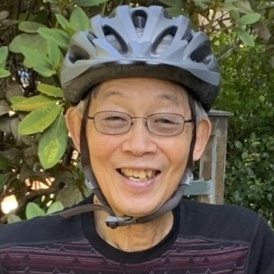Bernard Lo, MD, is Professor of Medicine Emeritus and Director Emeritus of the Program in Medical Ethics at the University of California, San Francisco (UCSF). He is also President Emeritus of the Greenwall Foundation in New York, New York. He is the author of Resolving Ethical Dilemmas: A Guide for Clinicians (5th ed., 2014) and of Ethical Issues in Clinical Research (2010). Dr. Lo’s areas of expertise include ethical issues concerning decision-making near the end-of-life, stem cell research, oversight of human participants research, the doctor-patient relationship, and conflicts of interest.
Explore the Collection
- Anita Allen, JD, PhD
- Lori Andrews, JD
- George Annas, JD, MPH
- Margaret P. Battin, PhD
- Tom L. Beauchamp, PhD
- Arthur L. Caplan, PhD
- Alexander Capron, LLB
- R. Alta Charo, JD
- James F. Childress, PhD
- Larry Churchill, PhD, MDiv
- Robert Cook-Deegan, MD
- Rebecca Dresser, JD, MS
- Ruth R. Faden, PhD, MPH
- Alan Fleischman, MD
- Norman Fost, MD, MPH
- Vanessa Northington Gamble, MD, PhD
- Samuel Gorovitz, PhD
- Brad Gray, PhD
- Patricia King, JD
- Loretta M. Kopelman, PhD
- Bernard Lo, MD
- Ruth Macklin, PhD
- Laurence B. McCullough, PhD
- Gilbert Meilaender, PhD, MDiv
- Steven Miles, MD
- Jonathan Moreno, PhD
- Thomas H. Murray, PhD
- Susan Sherwin, PhD
- LeRoy Walters, BD, MPhil, PhD
- Rueben Warren, DDS, DrPH
- Daniel I. Wikler, PhD
- William J. Winslade, JD, PhD
- Laurie Zoloth, PhD
Bernard Lo, MD
Bernard Lo, MD
Professor of Medicine Emeritus and Director Emeritus of the Program in Medical Ethics,
University of California, San Francisco

You can find full audio, transcript, and other materials in the Moral Histories Archive.
Johns Hopkins University holds all rights, title, and interests to these records, including copyright and literary rights. The records are made available for research use. Any user seeking to publish part or all of a record in this collection must seek permission from the Ferdinand Hamburger University Archives, Sheridan Libraries.